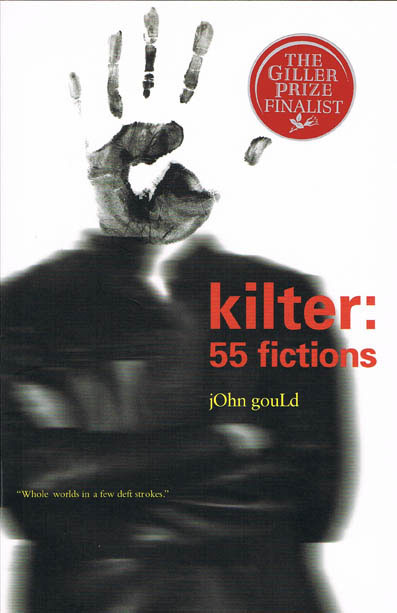
In John Gould‘s kilter: 55 fictions, one of those fictions, called kaNsas, tells the story of how a grad student from an unnamed Mathematics department meets a grad student from a similarly unnamed English department. The two meet at a Hallowe’en party. Cynthia is 22 and dressed as a busty Judy Garland when she was 16 trying to be a 13-year-old flat-chested Dorothy. Hence the title “kaNsas”. Cam’s costume is more prosaic. He is wearing a woman’s undergarment outside his clothes and is passing himself off as the famed German logician, Kurt Gödel (because the umlaut makes Gödel sound like girdle — in case you were wondering).
Improbably, Cynthia spends the night with Cam even after he has explained one of Gödel’s incompleteness theorems:
“Gödel proved that all systems contain undecidable propositions,” he shouted, leaning in, “that no system can be both consistent and complete.” Joan of Arc waved her sword at him from across the room–a guy from one of his tutorials in a little green tunic. Cam waved back. “Gödel said you’ll never be able to capture it all,” he shouted, “that even when you’ve said everything, you haven’t said everything. You’ve left something out.”
I love the response:
Cynthia scowled. “Another effing poet,” she yelled, her breath a weird brew of garlic and hops. “I’m up to here with poets. Got any more beer?”
This sent my mind spinning. Like a few of my nerdy friends from high school, I have enjoyed a long-standing and exceedingly vague familiarity with Gödel thanks to Douglas Hofstader whose GEB won the Pulitzer when I was in grade 11. But, to be honest, because I’m no mathematician, the most I can reasonably say about Gödel and his theorem is that it makes a handy analogy. I have no idea if it has any application to life in general. I’d like to think so. I treat Gödel the same way I treat Heisenberg and his uncertainty principle. Even though I know nothing about quantum mechanics, I’d like to think I could translate the uncertainty principle to other areas of life. I’d like to think it’s more than just an analogy. I’d like to think it holds for us an existential truth.
If an incompleteness theorem could leap from the boundaries of mathematics, it might explain why religion is such a disappointment, why the Bible leaves me wanting, why it seems increasingly ludicrous to suppose any god could be described with adjectives that begin with the prefix “omni”. It might explain why my compulsion to document my world (both in words and pictures) would make me feel hollow if it weren’t so laughable. It’s reassuring that I’m not alone in my compulsion; I share it with millions of bloggers and tweeters and facebookers around the world. I even share it with the world’s largest media corporation which has attempted to photograph every street in the world and every square millimetre of its surface, has tried to digitize every book ever published, and records every keystroke that finds its way onto the world wide web.
How do we read this notion of incompleteness in the context of Gould’s book? The story, kaNsas, seems to say that there is no analogy between Gödel’s theorem and everyday living. When Cam and Cynthia wake up the next morning: “It was one of those moments, one of those rare moments that hint at a sort of completeness, of wholeness. One of those moments pregnant with totality.” Maybe, at least in our emotional lives, a sense of completeness is sometimes possible.
And yet this sense of completeness is undermined by the fact that there are 55 short fictions here. Gould seems to be afflicted by the same compulsion that sometimes seizes me. He offers snap shots of the world, as if he’s Google Streetview motoring down the emotional avenues of our life, trying to document it all. It’s heroic, but if he thinks he’s going to document it all …
